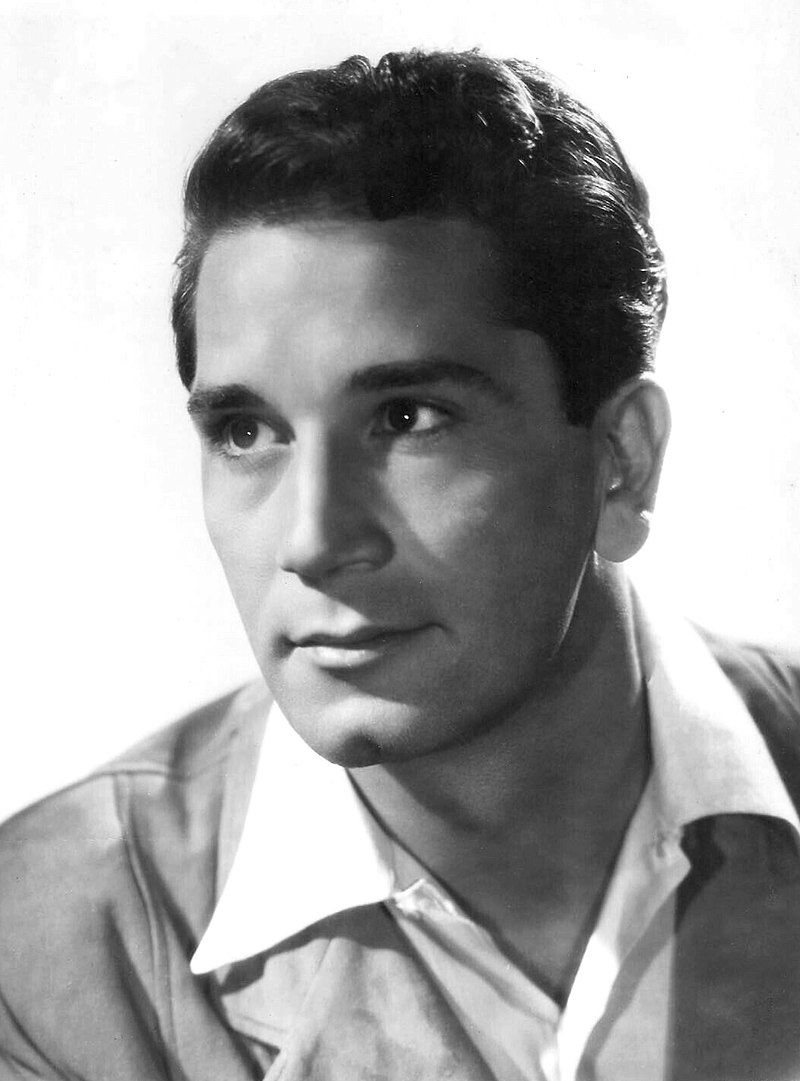President Biden drew boos and howls of protest when he suggested during his recent State of the Union address that some of his opponents had Social Security and other programs in their sights. Rep. Taylor Greene called him a “liar.” But the conservative campaign against the program enacted first in 1935 has been well-documented, not least by advocates Nancy Altman and Eric Kingson. The Echo’s Nov. 10, 2015, review of their book “Social Security Works!” is reprinted here.
In the storyline of the post-war movie “Call Northside 777,” an immigrant of about 60 named Tillie Wiecek worked long hours over many years scrubbing floors, with the aim of saving $5,000. She met her target in or around 1944.
It was a tidy sum – $66,000, in today’s money – saved through the worst years of the Great Depression and World War II. A nest egg for her senior years, you might think. Except that it would not be particularly rational to sign up for arduous double shifts with an eye to a moment that might never come. Indeed, such work would make an early grave likelier. On the other hand, it’s not an amount that, on its own, could come near to sustaining one in a long retirement.
As it happened, “Call Northside 777” was inspired by a real story, and a real Polish immigrant named Tillie Majczek, a cleaner at the Commonwealth Edison Company. The real-life Tillie, like her movie alter ego, took out a classified ad in the Chicago Times pledging a reward (yes, $5,000) for information that would lead to the release of her imprisoned son. He was serving a 99-year sentence for the murder of a Chicago police officer in a speakeasy in 1932. In the film, James Stewart played skeptical journalist P.J. McNeal (based on the real-life police reporter James McGuire), who was not pleased when asked by his editor to write about a convicted cop-killer called Frank Wiecek.
I introduced this movie to a friend who is originally from Warsaw and she enjoyed it, not least because it struck a chord, culturally. “Polish mothers and their sons!” she said with a good-natured eye roll.
But isn’t Tillie’s devotion the ideal for most parents?
Do they not spend decades prioritizing their children – particularly in providing the basics in the early years, such as food, clothing and shelter? Later, there’s college to think of – which is something more tangible for parents than some unknown future for themselves. Most will put their children’s welfare in the here and now before they think about whether they’d be able buy a cup of coffee when they’re 70, 75 or 80.
Of course, as “Social Security Works!” authors Nancy J. Altman and Eric R. Kingson point out, because of an ingenious national program implemented by the Roosevelt Administration in the mid-1930s people don’t worry the way they once did about encroaching old age. And because Medicare, Social Security and other programs provide a floor of protection for their own parents, many in the middle-class are freer to concentrate on their children.
However, because this is a nation of folks just like Tillie, barely half of all households have any retirement savings and for many of those it’s a rather low amount. Indeed, putting aside money can be impractical, the authors suggest, for a middle-class going backwards or treading water, while the 1 percent reaps the benefits of growth.
The metaphor once used for the ideal for an American retirement was the three-legged stool – savings, work-sponsored pensions and Social Security. But Altman and Kingson say that a pyramid, with Social Security providing the sturdy base, would have been more apt.
If seniors are having an increasingly difficult time maintaining their standard of living, Social Security is not the problem. Rather, it’s the basis of a solution.
Altman and Kingson make a powerful case in their book, which is subtitled “Why Social Security Isn’t Going Broke and How Expanding It Will Help Us All.”
Yet, despite the “overwhelming popular support, sound economics, and reduction in anxiety as well as poverty, Social Security remains under relentless attack,” writes the Pulitzer Prize-winning journalist David Cay Johnston in the book’s introduction.
‘Purge the rottenness’
Altman and Kingson quote a pension expert of a century ago to illustrate just why growing old was once so feared. Lee Welling Squier wrote in 1912: “After the age of 60 has been reached, the transition from non-dependence to dependence is an easy stage – property gone, friends passed away or removed, relatives become few, ambition collapsed, only a few short years left to live, with death a final and welcome end to it all—such conclusions inevitably sweep the wage-earners from the class of hopeful independent citizens into that of the helpless poor.”
It was not the Federal government’s job to help out and that was still the attitude by the end of the 1920s. The fabulously wealthy industrialist Andrew Mellon, who was President Hoover’s treasury secretary, appeared to welcome the Great Depression, which made one third of the workforce unemployed. He argued it would “purge the rottenness out of the system…People will work harder, live a moral life. Values will be adjusted, and enterprising people will pick up from less competent people.”
Roosevelt presided over a revolution in thinking from 1933, but as the New Deal progressed he faced pushback even from within his own party. Democratic Senator Thomas Gore, of Oklahoma, worried that the plan was to “substitute social security for the struggle for existence.” (His grandson, the writer Gore Vidal, said of him: “He was a genuine populist; but he did not like people very much.”)
By the mid-1950s, though, President Eisenhower was privately labeling those who opposed Social Security as part of a “tiny splinter group” and “stupid.”
Some of them set up in 1958 the John Birch Society, whose members seemed divided as to whether the president was a communist stooge or an actual communist.
One founding member was oilman Fred Koch, who passed on his considerable wealth and right-leaning views to his four sons. Two of them, Charles and David, have moved the family operation to the mainstream, and the Koch empire now donates vast amounts of money to Republican candidates. They’ve also helped bankroll the anti-Social Security cause. Meanwhile, another multi-billionaire Peter Peterson has supported the crusade to the tune of $400 million.
Since the Reagan era, conservative think-tanks have been looking for ways to undermine Social Security. In 1983, two researchers with the Cato Institute proposed a “Leninist strategy” as the way to go.
Said Kingson in an interview with the Irish Echo in 2014, “It provided a roadmap: Tell people of 55 and over: ‘Be happy, don’t worry.’ Tell the younger people that it won’t be there for them and that it would be better if it were privatized.”
If it had been privatized 30 years ago, he added, “we would have had a national calamity in 2008.”
But the campaign continues unabated. Why? One reason is Wall Street would like to get its hands on the money. Another is the dogma that says something that “socialistic” and “collectivist” should never have been allowed in the first place.
Gov. Chris Christie was faithfully following the roadmap at a recent GOP primary debate when he declared that Social Security was going broke. Of course, ignorance might have been the issue here, just as it was when moderator Martha Raddatz framed a question during the 2012 vice-presidential debates. But the reply she got from a policy wonk, Rep. Paul Ryan, was one that consciously stuck to the devious Leninist strategy. “Absolutely. Medicare and Social Security are going broke,” he said. “These are indisputable facts.”
More generally, one can blame another Russian dogmatist – Ayn Rand – for the Ryan worldview. His idea of what’s moral, and hers, is close to Mellon’s.
Altman and Kingson write that the New Deal aimed to build a “fairer and more stable economy.” Yet, several lines of attack on Social Security from the right claim it’s not fair.
Below a recent online newspaper article about politics, one commenter introduced the issue of Social Security thus: “SS is a rip-off deal. I've got two brothers who have died so far before getting a dime of SS and do you know what would happen to a banker who kept their retirement savings? The money just gets pocketed by SS when somebody dies. It's a horrible deal.”
Dependents’ insurance
Well, Altman and Kingson would tell him, first of all, that Social Security is not savings, it’s wage insurance, which is “the most effective way to protect workers and their families when wages are lost as a result of disability, death or old age.”
Yes, death. The authors report that nearly “5,000 children who lost a parent in the Iraq and Afghanistan wars are now receiving survivors’ benefits.” Children make up 7.6 percent of Social Security recipients, while a further 11.6 percent are in other family categories, such as parents and widows.
Social Security Administration estimates that more than a quarter of workers who are 20 today will be disabled before they reach the age of 67.
That, by the way, is becoming the age of retirement because of reforms made back in 1983. And it’s the age, too, at which the actress who played Tillie died. Richard Conte, who played her son Frank Wiecek, passed away at 65. The director of “Call Northside 777” was 86 when his time came. James Stewart lived to be 89, but Helen Walker, the woman who took the role of his wife, was dead at 47.
Meanwhile, the man who complained his brothers didn’t get a dime from Social Security could still be receiving his monthly check at age 108.
Uncertainties are “easily estimated for groups, but impossible to determine for individuals,” write Altman and Kingson, which is why insurance is the solution.
The authors are scholars who have served on bipartisan commissions going back to the early 1980s. But “Social Security Works!” is not just for the policy wonk; it’s a handbook for any citizen who aims to be knowledgeable about the issue.
There are inevitably lots of facts and figures here, but Altman and Kingson write clearly and well, and their humanitarianism is always shining through.
“Social Security Works!” is published by the New Press; 299 pp.; $16.95.










